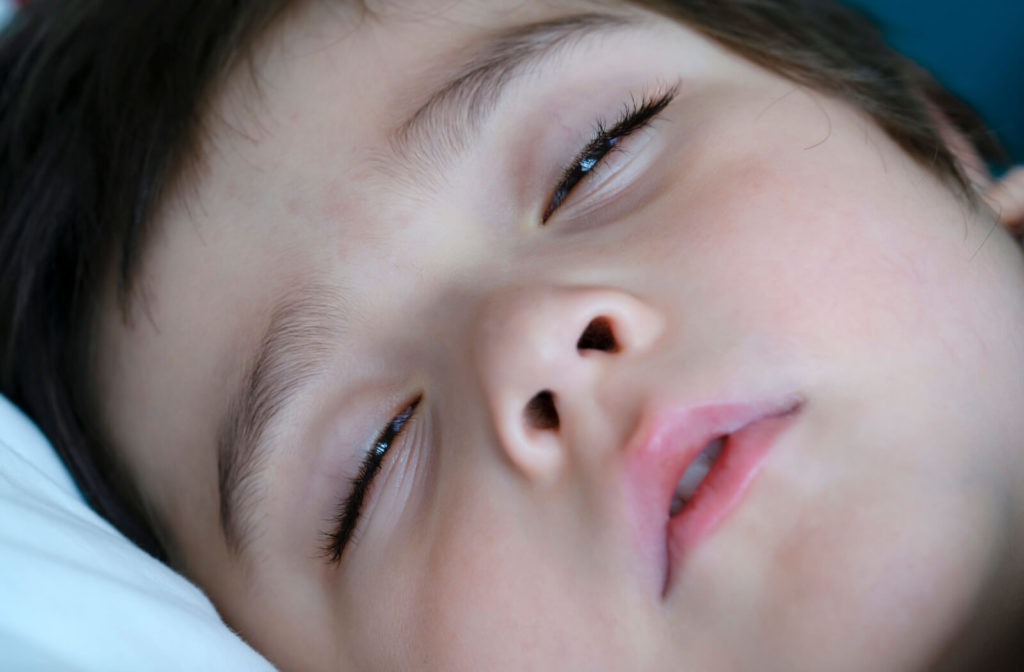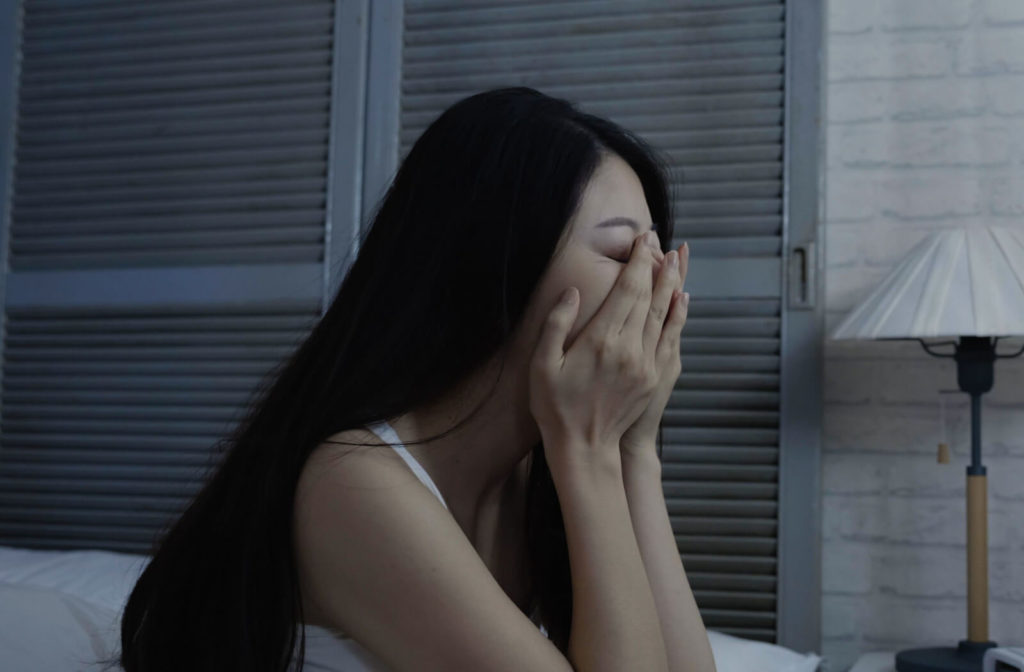There’s nothing quite like waking up after a good night’s sleep and feeling refreshed. However, few things can ruin that feeling as quickly as waking up with dry, irritated eyes.
Dry eyes can develop overnight due to a wide range of factors, including your environmental conditions or not fully closing your eyes while sleeping. If you’re experiencing persistent dry eyes, it’s important to talk to your eye care professional to identify the underlying cause of your dry eyes to find effective and lasting relief.
What Is Dry Eye?
Dry eye is a common eye condition that occurs when there is a problem with your tear production. Your tears play a key role in maintaining healthy, hydrated eyes. If your eyes are not producing enough tears or your tears evaporate too quickly, it can cause uncomfortable dry eye symptoms.
Common dry eye symptoms include:
- Watery eyes
- Burning or stinging eyes
- Eye redness
- Feeling like something is in your eye
- Sensitivity to light
- Discomfort while wearing contact lenses
- Blurred vision
There are 2 main causes of dry eyes—either your eyes are not producing enough high-quality tears, or your tears are evaporating too quickly. Identifying what type of dry eye you have is an important step to finding relief from dry eye symptoms.
Decreased Tear Production
You may experience a decrease in tear production due to factors such as age, certain medical conditions, or as a side effect of some medications. Dry eye caused by decreased tear production, also called an aqueous deficiency, is the less common cause of dry eyes and only accounts for about 10% of all dry eyes.
Increased Tear Evaporation
Evaporative dry eye is the more common form of dry eye. This type of dry eye usually occurs when the oil glands in your eyelids (meibomian glands) are blocked and not producing enough oils, which results in the production of low-quality tears that evaporate quickly. This condition is called meibomian gland dysfunction (MGD) and accounts for an estimated 85% of dry eyes.

Why Am I Waking Up with Dry Eyes?
Unfortunately, developing dry eyes is not exclusive to your waking hours. If you are experiencing dry eyes after a long night’s sleep, it may be due to a wide range of issues, including:
- Sleeping with your eyes partially open—this can cause your tears to evaporate more quickly, leaving your eyes dry and irritated.
- Sleeping in a dry environment—a dry environment can be a major contributor to developing dry eyes. Sleeping with an air conditioner or fan running can cause the air to become especially dry.
- Aging—as we age, our tear production naturally decreases, which can lead to dry eyes.
- Certain medications—some medications, such as antihistamines, decongestants, and sleeping pills can cause dry eyes as a side effect.
- Medical conditions—certain medical conditions such as Sjogren’s syndrome, rheumatoid arthritis, and diabetes can contribute to dry eyes.
Nocturnal Lagophthalmos
Waking up after a long night’s sleep with dry eye symptoms may be a sign that you are not fully closing your eyelids while sleeping. Nocturnal lagophthalmos is a condition in which a person is unable to fully close their eyelids while asleep. This can lead to dryness, irritation, and other eye problems.
Nocturnal lagophthalmos can be caused by a variety of factors, including a history of stroke, injury, Bell’s palsy, and some medical conditions. The condition may require more advanced treatment than other causes of dry eye, including surgical treatment.
How Can I Treat Overnight Dry Eyes?
In most cases, mild dry eyes can be treated at home through changes to your environment and at-home remedies. If you are waking up with dry eyes, there are several steps that you can take to help alleviate symptoms:
- Use a humidifier: Adding moisture to the air can help prevent your eyes from becoming dry during the night. Add a humidifier to your bedroom while you sleep.
- Use artificial tears: Hydrating eye drops can help provide lubrication and moisture to your eyes at any time of day. Consider adding a hydrating eye drop to your bedtime routine. If over-the-counter eye drops are not providing enough relief, your eye doctor may recommend prescription eye drops or ointments.
- Discuss medication side effects with your doctor: If your dry eyes are caused by medication, talk to your doctors about alternative treatments or adjusting the dosage.
- Treat meibomian gland dysfunction: If you are experiencing dry eye due to MGD, it may be necessary to treat the underlying issue to find long-term relief. Treatments for MGD may include: using a warm compress, cleansing your eyelids and eyelashes, and introducing more omega-3 fatty acids into your diet. Your eye doctor may also recommend in-office treatments for some cases of MGD.
Find Out More About Treating Dry Eye
If you’re experiencing dry eye symptoms at any time of day, it’s a good idea to book an appointment with your eye doctor. Your eye doctor will be able to conduct a complete examination of your eyes to better understand what might be causing your dry eyes and work with you to create a treatment plan catered to your unique eye care needs.
Contact the team at Crum Optometric Group to schedule an eye exam today.






